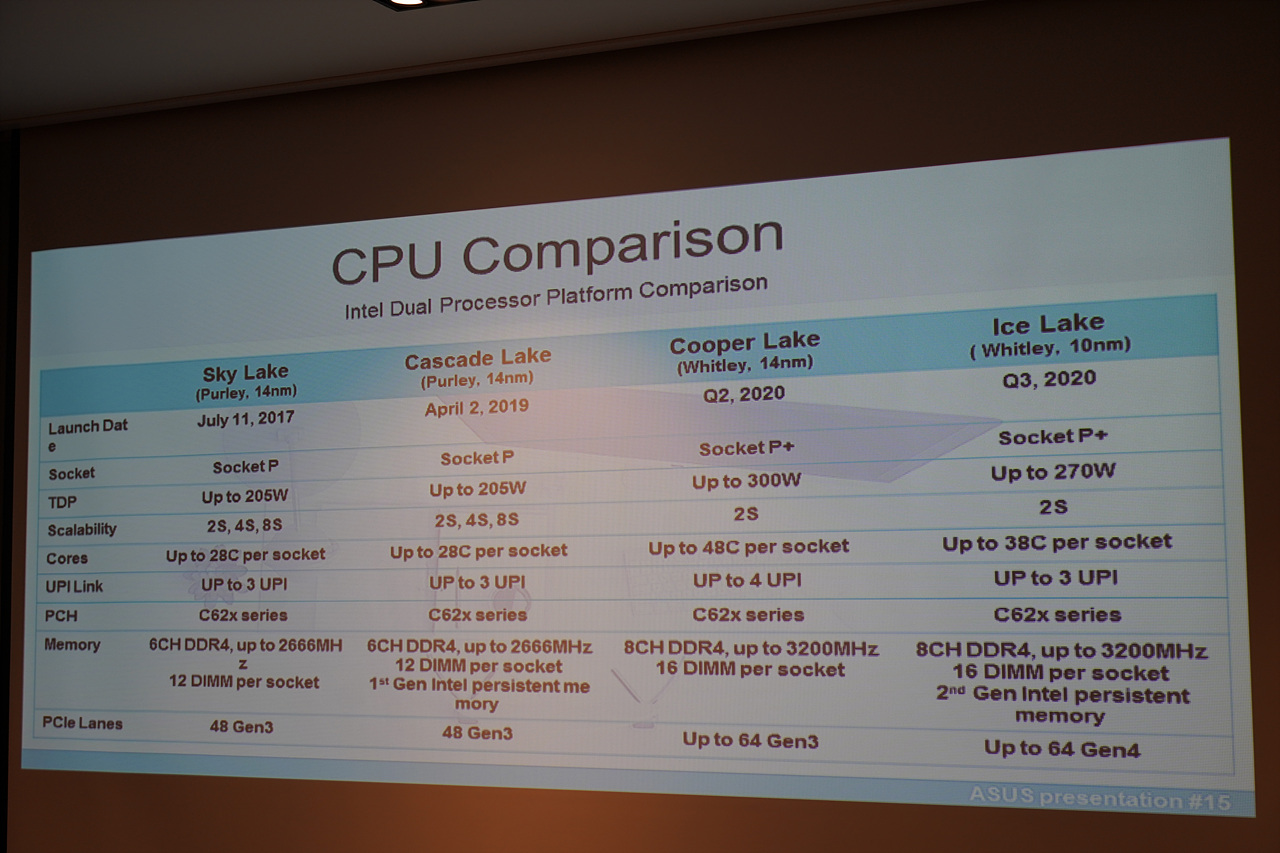Ice Lake-SP Reportedly Sports Up To 38 Cores And Lands Q3 2020

New information about Intel's future enterprise processors has surfaced during an Asus presentation. Korean publication Brainbox snapped a photograph of a PowerPoint slide that seemingly compares Intel's past and present processor microarchitectures with the upcoming Cooper Lake and Ice Lake.
Cooper Lake-SP (CPL-SP) will allegedly make its way to the market first. The 14nm chips are scheduled to land in the second quarter of 2020. The table from the PowerPoint slide states that Cooper Lake carries up to 48 cores with TDP (thermal design power) ratings up to 300W. However, Intel has already confirmed that there will be a 56-core Cooper Lake chip. Cooper Lake processors will support up to four Ultra Path Interconnect (UPI) links and 64 PCIe 3.0 lanes.
Ice Lake-SP (ICL-SP), which is based on Intel's latest 10nm process node, is supposed to arrive shortly after Cooper Lake-SP. The PowerPoint slide points to the third quarter of 2020. Apparently, Ice Lake-SP parts will max out at 38 cores and 270W TDP. They allow up to three UPI links and offer up to 64 PCIe 4.0 lanes.
Cooper Lake-SP and Ice Lake-SP reside on the Whitley platform. Both support dual-socket configurations, eight memory channels and DDR4-3200 modules. However, only Ice Lake-SP parts are compatible with second-generation Intel Optane DC Persistent Memory.
The new processors will likely drop into the LGA4189 socket, which comes in two variants. The LGA4189-4 socket (Socket P4) houses Ice Lake-SP and Cooper Lake-4 parts while the LGA4189-5 (Socket P5) is exclusively for Cooper Lake-6 parts.
AMD has already set the bar really high with its EPYC Rome processors. The chipmaker's EPYC Milan processors, which are reportedly based on the Zen 3 microarchitecture and 7nm+ node, are rumored to drop next year as well. Whichever way you look at it, Intel has a hard road ahead.
Get Tom's Hardware's best news and in-depth reviews, straight to your inbox.

Zhiye Liu is a news editor, memory reviewer, and SSD tester at Tom’s Hardware. Although he loves everything that’s hardware, he has a soft spot for CPUs, GPUs, and RAM.